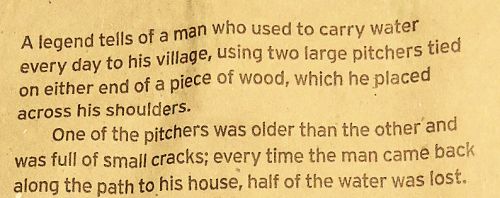Several weeks ago I was contacted by Ramona*, a woman in her 50s who is leading what she considers to be a horrible, no-quality life. She is tied to machines for all but about 2 hours a day, she needs regular surgeries to stay alive, she can’t eat food (liquids only), there is no prospect for improvement, and she has no family… She has no hope, and she wants to die.
She has tried discussing options with her doctors, but to no avail. She wants to stop her treatment, enter hospice care and receive palliative care instead. That should be her right! But because they CAN keep her alive (and, of course, can keep taking her money and her insurance – for years) her doctors will not discuss hospice with her, nor have they provided any other options.
She has also tried contacting doctors in right-to-die states, but since she does not live in those states, they will not talk to her.
So she reached out to me, asking me if I could help her figure out what to do. After all, is determining our own death, perhaps, the ultimate in patient empowerment? Whether it is or isn’t, there are so very many details and questions to be concerned with ranging from possible mental health issues, to the law, to one’s religious beliefs, to actually making it happen if that’s the ultimate choice.
The only help I could provide to Ramona was to reach out to two of my listserves (one was the APHA Forum) and ask if anyone had any suggestions that I could send to her. A handful of people were able to provide some resources – all useful – which I then forwarded on to her.
But it got me thinking about what choices any of us would have for making such a determination. And I don’t just mean I’ve thought about it on occasion. I mean – for weeks it has been constantly on my mind, coming out at the oddest of times. Death, dying, facing years of misery….
In my lifetime, I’ve observed and experienced three very different approaches to facing ones’ own death. My grandmother, who I adored and admired (and I am most like) decided that she was ready to die after being in a nursing home for a year or so where she truly hated living. She was in her 80s, sick with many “elderly afflictions” – nothing terminal by itself, but plenty to keep her debilitated and unhappy. So she just stopped eating and drinking. I was in my 20s, lived on the other side of the country and had no way to be with her. Dad visited every day to try to feed her, but she would just spit out the food, and wouldn’t discuss it with him… A few weeks later she did die. Knowing it was what she wanted – on her own terms – made losing her a bit more bearable.
In 2004, I faced my own death. Told I had terminal lymphoma, I was in the process of deciding whether to try to extend my life a few months with chemo when I determined, and later confirmed, I didn’t have cancer at all…. most of you know the story; I won’t retell it here. But I was definitely leaning toward refusing chemo because I could not figure out why I would want to spend the few months I had left, and all my money, on treatment that would only make me even more miserable. I was rescued from having to make a decision, but it continues to weigh on me even today.
My third example is very different. My father died in late 2012 after a successful 26 year fight with prostate cancer. Dad’s decision making for those 26 years was very much about staying alive, and he fought the good fight right until the end. Dad, a male version of Pollyanna, was sure that he just needed to stay alive long enough because THE cure for prostate cancer was always just around the corner. He did everything – EVERYTHING – he could to stay alive and (in my not so humble opinion) really never faced his mortality. In his head, he was actually very practical, preparing all the right advance directives, sharing every last detail of health and finances with me. But in his heart, he just never thought we would need any of it.
As I thought more about it, I began to wonder, what is a patient advocate’s role in helping someone figure out their options for dying?
With my three experiences as the backdrop – I kept thinking about Ramona and what options she really does have. I spent hours and hours reading, watching videos, listening to speakers…. and then I began to write.
The eventual outcome is a body of work that can be used by patients and their advocates to help them make decisions about their own deaths on their own terms. That’s what I am sharing with you today.
I’m sharing it with you – health and patient advocates – because I believe many of you will be hearing more from patients and caregivers with these kinds of questions, too. The medical needs of baby boomers have not yet begun to peak. As they do, I believe we’ll begin hearing questions about choosing death more frequently.
No – I don’t believe potential clients will ask you to help them die. But I do believe they will make comments to you, or will outright ask you to help them figure out their options. When they do, you can come back here to find some first steps.
The steps include preparations we should all be making, no matter how healthy or unhealthy we are. Some are questions every advocate who works with older patients (and maybe some who are younger) should be asking regarding advance directives including DNRs, POLSTs and others. What happens if they are totally debilitated by some event (a heart attack or stroke or embolism or?) We know doctors will try to keep them alive beyond what they might wish… so what plans are in place to make sure it’s their OWN wishes that are respected? And – is there a role in there for you, their advocate?
Other questions will be asked by those who, like Ramona, just don’t want to live any longer but don’t know where to turn. Like Ramona, they know there must be SOMETHING; they just don’t know what.
The key will be to provide decision making support, or to find someone who can. Whether you do so through formal Shared Decision Making, or you refer them to these articles, or maybe you refer them to one of the organizations that steps in to help – that is up to you. You aren’t going to help them die. You’re going to help them help themselves. And if you can’t help them, you’ll need to know where to turn to make sure they get what they need.
Linked below are three of more than a dozen articles I’ve now written to address this subject. If you want more information, you’ll find plenty of links in these articles to exactly what you need to find. If you think of questions that have not been answered, then please touch base and ask them.
Making the Choice to Die: The Right to Choose Death with Dignity
Four Steps to Making End of Life Decisions
Legal and religious considerations relating to end-of-life decision making and refusing treatment
A master list of resources about the right to choose death with dignity
For myself, because this has become so personal and yes – invasive – I’m hoping that I can let go of this subject for now. I’d rather spend my time thinking about how full of quality my own life is! Because – it is! I can’t imagine it being any better than it is today. And, at least now I know where to find information at the point none of that quality is left.
Have you worked with someone who wanted to know about their options for refusing treatment and choosing to die? Please share your story below.
. . . . . . . . . . . . . . . . . . . . . . . . . . . . . .
Share your experience or join the conversation.
APHA MEMBERSHIP INFO | TWITTER | ADVOCACY RESOURCES
. . . . . . . . . . . . . . . . . . . . . . . . . . . . . .
*Ramona is not her real name





As far as my background in medical ethics, she has the right to stop treatments. I’m not sure who is telling her otherwise. I would guess there is more to this story, and I would need to know more facts.
As advocates, we bump up against end of life issues every day. We found that there was a huge need for professional health care proxy work in our state (no one was doing it other than guardians) and it is right up our ally in terms of empowering patients to have the end they want. Stopping eating is a great way because most any individual has control over that. Other resources we like (and use): The Conversation Project, Five Wishes and check out this video: http://www.youtube.com/watch?v=y3DEacj2DLs
There are lots of opportunities to apply what we know as advocates to help people get the information they need for this very big topic. Thanks for sharing your thoughts Trisha!
My father was generally not a practical man. He didn’t have much but what he did have he would give to complete strangers that would give him their sob stories. In 1997 I went to the VA hospital with him because he had a chronic cough he couldn’t get rid of. That’s when we received the news that he had lung cancer. They discussed treatment options and wanted him to see an oncologist. As we were driving home that day and talking about what he was told, he made the decision not to do anything. For him it was a very “practical” decision because he knew if the cancer didn’t kill him the treatments would. He told me he wanted quality of life not quantity of life. It was heartbreaking and very sad, but we all respected his decision. I helped him get established with a local primary care physician who respected his decision and provided palliative measures only. He refused hospice care and told me he wanted to do this on his terms. He lived for 13 months and most of them were pretty good.